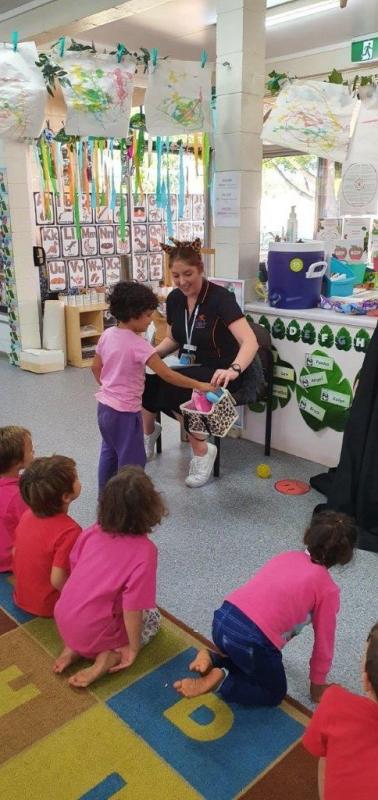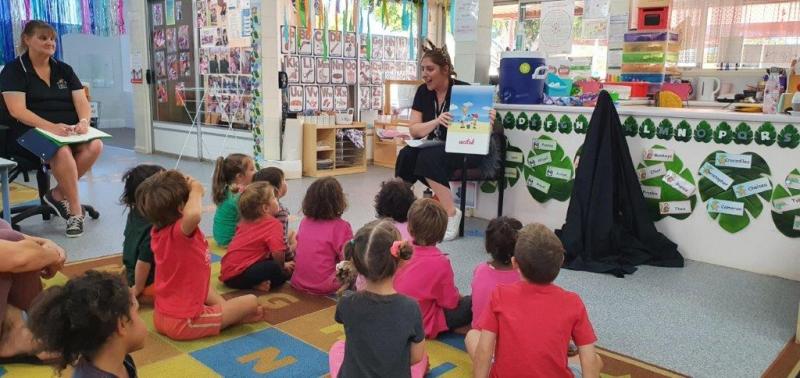With NAIDOC Week 2020 in full swing, Life Education Queensland is celebrating Aboriginal and Torres Strait Islander culture and history by reflecting on our recent trip to remote schools and kindergartens in the Mt Isa region.
From Barkly Highway State School and Cloncurry Kindergarten, to Mt Isa Central Primary and Injilinji Preschool & Kindergarten, educators Jenn and Natalie delivered the Life Education program to 12 schools and preschools and 1,446 children.
The response from schools, teachers and students was amazing.
Our educators could see real evidence that children had retained information about nutrition and other core program messages from previous visits and how this knowledge is now influencing their healthy food choices.
The response from teachers and students was incredibly positive. It’s wonderful when students are able to share information they have learned from our previous visit and that helps us build on their knowledge with new material. Students love Harold visiting their school and greatly benefit from the discussions and learning. - Natalie Hopsick educator
Life Education Queensland is reaching more schools and early learning centres in the state’s north west than ever before thanks to our partnership with Health and Wellbeing Queensland and vital support from Centacare North Queensland, which allocated funding from the Commonwealth’s Communities for Children program in the past year.
Life Education Queensland CEO Michael Fawsitt said the support means close to 4000 local school children will be able to access vital learning about hygiene, physical activity, nutrition and respectful relationships.
“It’s important that our service is available to as many Queensland children as possible, particularly those in regional, remote and disadvantaged communities,” Mr Fawsitt said. “Reducing chronic preventable disease starts with educating our kids to make safe and healthy choices.”

The health of Queenslanders 2018 – Report of the Chief Health Officer Queensland stated that:
“Chronic diseases caused 64% of total burden for Indigenous Australians, and accounted for 70% of the health gap between Indigenous and non-Indigenous Australians. More than one-third of the burden of disease in Indigenous Australians could have been prevented through modifiable risk factors.”
Through our tailored program, Life Education Queensland is working to improve the health and wellbeing of children in remote communities.
For example, the Life Education module, My Body Matters teaches young people –
• the importance of personal hygiene
• choosing foods for a healthy balanced diet
• benefits of physical activity and sleep
• and ways to keep safe at home, school and in the community
We look forward to returning to the Mt Isa region in 2021 and continuing to make a difference in the lives of children in state’s north west.
To book your school for their next visit, complete a booking form now.

*Australian Institute of Health and Welfare. Impact and causes of illness and death in Aboriginal and Torres Strait Islander people 2011. Cat. no. BOD 8. AIHW: Canberra; 2016.
**Australian Bureau of Statistics. Australian Aboriginal and Torres Strait Islander health survey: consumption of food groups from the Australian Dietary Guidelines, Australia 2012–13. Cat. no. 4727.0.55.008. ABS: Canberra; 2016.